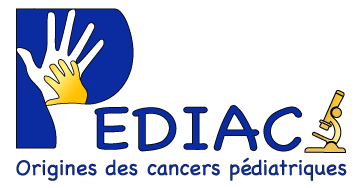team JAcqueline Clavel
Epidemiology of childhood cancers
Jacqueline Clavel, epidemiologist, heads the research team in epidemiology of childhood and adolescent cancers, EPICEA, at the Center for Research in Epidemiology and Statistics, U1153, INSERM, Université de Paris.
To conduct its research works, the team has developed national infrastructures also involved in epidemiological surveillance: the
National Childhood Cancer Registry has registered all cases of cancer in France since 1990 for malignant hemopathies and since 2000 for solid tumors and provides the French incidence
and survival figures. Based on the registry, the
CCOP, Childhood Cancer Observation Platform, brings together a database on treatment and systematic follow-up (COHOPER), a virtual biobank (BIOCAP), a radiotherapy database (PEDIART) and environmental data from geographic information
systems (GEOCAP). The CCOP is also enriched by pairing with the medico-administrative databases of the SNDS. The objective of the CCOP is to ensure, in complement of the registry, a continuous, perennial collection of standardized
data open to the scientific community to facilitate multidisciplinary research on childhood cancers. The team is involved in several international surveillance collaborations (ACCIS, ENCR, CONCORD). The CCOP is supported by ANR-Investissements
d’Avenir, INCa and Santé Publique France, la Fondation ARC and La Ligue.
A large part of the team’s research is devoted to research on childhood cancer risk factors, based on case-control studies with interviews of case and control parents and DNA bank, and on studies using geolocated
data. The studies target environmental factors (exposure to pesticides, pollution linked to road traffic and ionizing radiation in particular), infectious and immune factors, perinatal factors, and factors linked to lifestyle (type of childcare, maternal consumption during pregnancy). They have produced nearly a hundred and fifty international publications. The team contributes to the international Consortium on childhood cancers and leukeamias CLIC,
of which it was one of the founders.
In PEDIAC, the team is involved in WP1 “identifying risk factors for childhood cancer”. It contributes to the task 1.3 on research for genetic factors predisposing to second cancers with the COHOPER cohort of survivors. It contributes
to task 2 dedicated to research on environmental risk factors: from its studies based on the geolocation of places of residence at diagnosis (GEOCAP) and at birth (GEOCAP-birth), the team analyzes the risk of cancer in children living
near crops, roads, high voltage power lines and studies the influence of different epidemics on the incidence of leukemia; from its case-control studies included in the CLIC international consortium, it contributes to the study of
risk factors linked to occupational and domestic exposure of parents. It also provides exposure prevalence data for task 3 dedicated to estimating fractions attributable to various established and potential risk factors. Finally,
the team is trying to collect biological material to study the role of epigenetic markers evidenced by task 4. The team will also interact regularly with WP2 and WP3.
